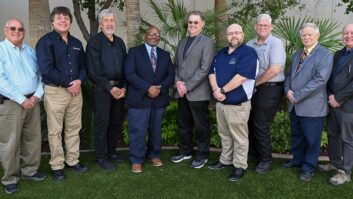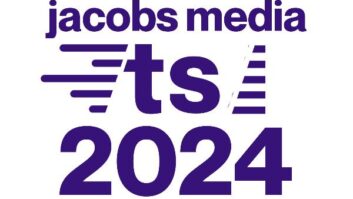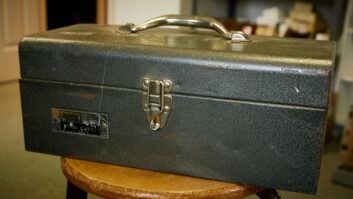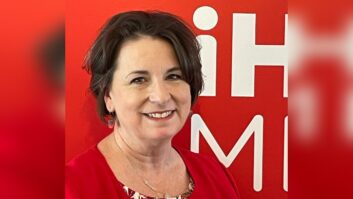Two Views on the FCC’s Invitation for Petitions for Noncommercial Designation of New FM Channels
The FCC Media Bureau has opened a window to permit noncommercial stations to apply for certain vacant FM allotments. John King and John Crigler are members of the law firm Garvey Schubert Barer in Washington, where they represent commercial and noncommercial broadcasters. In this written dialogue, they discuss different viewpoints on the topic.
King: In late September, the FCC announced that about 500 vacant FM channels could be reserved for noncommercial operation. These are commercial channels that were put in place by commercial broadcasters for commercial operation.
It’s tough enough that the person who gets an FM channel allocated has no guarantee that he or she will get the station. How come the would-be commercial operators have to stand in line behind noncommercial operators? Doesn’t seem fair.
Crigler: What’s fairness got to do with it? No one has really had a shot at acquiring vacant broadcast spectrum since the FCC did away with comparative hearings in 1994. It’s taken almost 10 years of administrative proceedings, amendments to the Communications Act and several trips to the court of appeals to replace the old system of awarding construction permits with new auction procedures.
The last stumbling block was figuring out how to handle situations in which a nonprofit and a for-profit each wanted the same frequency. The agency’s first solution was simply to treat nonprofits like for-profits and require them to bid on any frequency set for auction.
The court of appeals nixed that approach. The commission’s latest approach gives nonprofits one last chance to reserve vacant frequencies before setting the frequencies for auction. Look on the sunny side: You’re one step closer to an auction.
King: But I may wind up out in the cold. Look, the FCC set aside 20 channels for nonprofits, at the “left side” of the FM dial. Isn’t that enough?
This “one last chance” for them to take away my commercial frequency seems like a second bite at the apple. Nonprofits already got all the LPFM channels – I can’t apply for those. This looks like a veiled effort to keep new FMs out of the hands of commercial operators.
Crigler: The real issue is that there’s just not much broadcast spectrum left for anyone. LPFM doesn’t help existing noncommercial stations; they are barred from applying for LPFM stations.
Sure, the commission has reserved 20 of the 100 FM channels for noncommercial use, between 88.1 MHz and 107.9 MHz, but that doesn’t mean all of those channels are really available. For a host of technical reasons – proximity to Channel 6 TV, to Mexican and Canadian allotments, and to the sometimes idiosyncratic growth of noncommercial radio – vacant reserved channels often can’t be used.
Plus, nonprofits have always been allowed to operate on commercial channels. Many of the pioneer FM stations were noncommercial stations operating on non-reserved channels.
King: Well then, maybe two can play at this game. Perhaps I should claim-jump the nonprofit prospectors by reserving the channel I want, and get into the underwriting game as a noncommercial operator. Come to think of it, that would save me a bundle, since the channel wouldn’t go to auction.
Crigler: Good luck, but I don’t think you’ll find that it’s easy to reserve a channel and get a noncommercial license. You’ll need to show that you are precluded from serving the community of license with a reserved channel. You’ll also need to show that the non-reserved channel would provide a new first or second noncommercial service to at least 2,000 people over at least 10 percent of the station’s service area.
Along the way, you may have to defend your showing that the reservation criteria have been met. Anyone who wants to keep the channel commercial can try to shred your engineering study.
There are plenty of uncertainties to argue about. Then, if the channel is reserved, you’ll probably have to take on other noncommercial applicants when the FCC opens a filing window.
Assuming you survive these ordeals and get a permit for a noncommercial station, you’re ready to begin a glorious new career as a professional beggar.
King: Okay, maybe the noncommercial route isn’t as clear-cut as it seems. Just so I understand, if someone petitions to reserve a frequency I am interested in, to make it noncommercial, I can fight it, and we lock horns for another year or two, but if no one petitions to reserve it, the nonprofits are out of the picture, and the channel goes to auction – perhaps next year?
Crigler: This time, I almost agree with you. If no one petitions to reserve one of the 500 vacant channels by Nov. 21, 2003, the channel will be included in the next FM auction. You still aren’t necessarily done with nonprofits, however. Nonprofits can participate in the auction and bid on a frequency as though it were to be used for a commercial station. Nonprofits just have to tuck in their wings before entering the commercial auction pit.
King: Then come one, come all, and may the highest bidder win. Is this a great country or what?
Crigler: It’s a great country to have money in.
Reach the authors at [email protected] and [email protected]. RW welcomes other points of view to [email protected].












